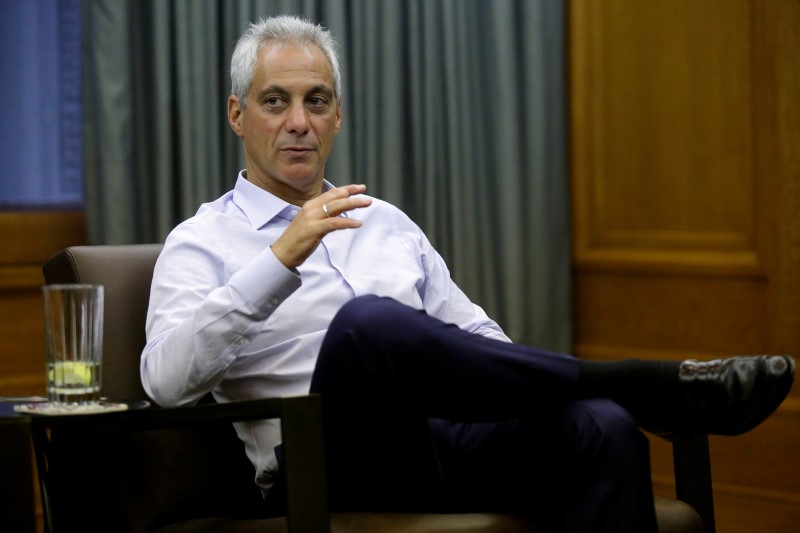By Julia Jacobs and Karen Pierog
CHICAGO (Reuters) - Chicago Mayor Rahm Emanuel on Wednesday proposed an ordinance that would lock in higher city payments to two pension funds after state legislation to do so became mired in Illinois' political stalemate.
The ordinance would put payments for the city's municipal and laborers' pensions on a five-year ramp to reach actuarial levels that would make the retirement systems 90 percent funded by the end of 2058. The city has already put into place a tax on water and sewer usage and a telephone surcharge to fund the higher payments.
Without the additional money, the two pension funds would become insolvent within 10 years.
The mayor told reporters he decided to seek city action on pension payments to send a positive signal to credit ratings agencies and to ease city workers' possible concerns about their retirement security.
Emanuel said using this “home-rule” option offers a way to address the city’s pension problem given opposition from Governor Bruce Rauner.
“We are taking steps to wall ourselves economically and financially and fiscally off from Springfield - and specifically Governor Rauner’s chaos,” he said, referring to the state capital.
The Republican governor vetoed a bill in March that would have mandated the payment plan in state law, saying it would lead to a city tax hike and that a fix for Chicago needed to be part of broader, statewide pension funding changes. Those cost-saving changes are a factor in Illinois' ongoing political impasse that has left the state without a complete budget for two years.
A second identical bill for Chicago was subsequently passed by the Democratic-controlled legislature but has not been sent to Rauner.
Molly Poppe, a city spokeswoman, said the mayor still wants to codify the payment plan in Illinois law, and needs the state to enact a bill requiring higher pension contributions from some employees.
Credit ratings for the nation's third-largest city have tumbled into the low investment grade to junk levels due largely to an unfunded pension liability that stood at $33.8 billion at the end of fiscal 2015 for its four retirement systems.

S&P Global Ratings, which rates Chicago BBB-plus, earlier this year called pension funding "critical" to the city's budget stability and said a delay in boosting pension contributions could lead to a downgrade.